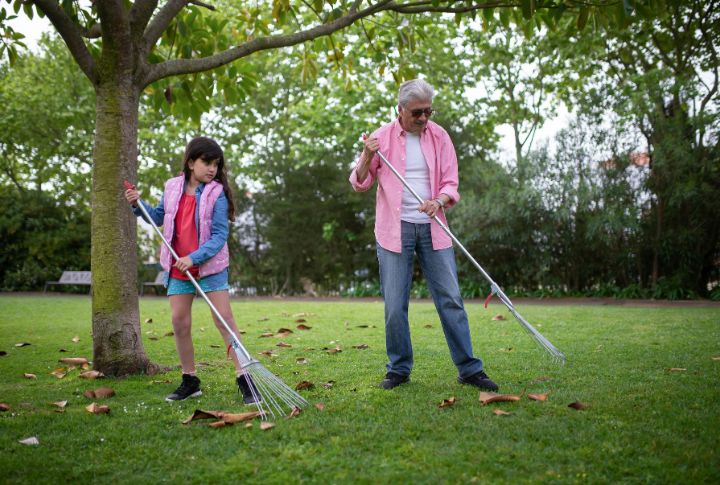
The crunch of dry leaves underfoot might sound charming, but those piles can cause more harm than most realize. Ignoring them means more than just a messy yard—it’s a hidden threat to your lawn’s health, your home’s appearance, and your future spring clean-up. Let’s break down what really happens when you skip the rake and how a few quick sweeps can save you from bigger headaches later.
A Smothered Lawn Can’t Breathe
When leaves pile up, they form a dense layer that keeps sunlight from reaching the grass and prevents moisture from moving through the soil. Your lawn depends on that steady balance of light and circulation to stay healthy. Once that natural exchange stops, the grass weakens fast. What begins as a soft blanket of color soon turns into a suffocating mat, cutting off growth and leaving thin, uneven patches when spring arrives.
That same layer traps humidity beneath it to create the perfect spot for mold to spread and roots to rot. Over time, the decay seeps deeper and damages the turf’s foundation. A quick raking or light mulching removes that pressure and gives your grass the space to recover naturally. A few sweeps now can spare you from replanting later. Think of it as giving your lawn a fresh breath before winter settles in.
Pests See An Invitation, Not A Problem
Under a pile of leaves, the cozy, shaded spaces feel like luxury lodges for bugs and rodents. Spiders, ticks, and mice find perfect cover where leaves stay damp and undisturbed. Once winter sets in, some of those uninvited guests start looking for warmer shelter—often inside your home.
Clearing leaves breaks up those hideouts and cuts off nesting spots. Even moving leaves to compost or garden beds helps because pests tend to prefer flat, thick layers on lawns. A clean yard isn’t just for looks—it’s your best defense against the tiny freeloaders planning their next move indoors.
Skipping Raking Brings Bigger Messes Later
It’s tempting to think those leaves will decompose on their own. They will—but not before clogging drains, matting down grass, or blowing into your neighbors’ yards. Once they break down, they can form a dense mat that traps runoff and encourages slippery surfaces after rain.
Raking early saves you from double the effort later. A leaf-covered lawn through winter turns into a mushy, heavy mess by spring. By then, you’re dealing with decayed layers that must be scraped off instead of easily lifted. Handle it now, and your future self will thank you when the thaw arrives.
A Final Word Worth Raking Over
There’s something quietly rewarding about turning chaos into order, and raking does exactly that. Beyond the tidy look, it’s an act of care that connects you with the rhythm of the seasons. Every pull of the rake lifts away what’s decaying and makes room for what will soon grow again.
Those simple sweeps are more than maintenance—they’re renewal. You’re loosening the soil, giving your yard air, and resetting the space for life to return in spring. It’s not about perfection but stewardship, about noticing the small things that keep a home alive and breathing. So step outside before winter closes in and give your lawn that small gesture of effort that always gives back.

